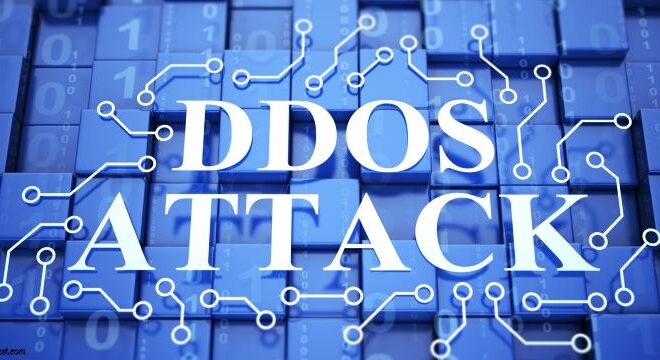
Fortifying Digital Transactions: Modern Anti-Fraud Strategies for Online Businesses
Identifying the Most Common Online Fraud Tactics
As online commerce continues to grow, so does the ingenuity of cybercriminals, who orchestrate diverse and intricate schemes to exploit vulnerabilities within digital transaction systems. Identity theft remains prevalent when a fraudster uses someone else’s personal information to make unauthorized transactions. Phishing attempts, designed to trick individuals into divulging sensitive information, have grown increasingly sophisticated. Moreover, account takeovers, where fraudsters gain unauthorized access to a customer’s account, can result in considerable losses and reputational damage. Awareness of these common fraud tactics is crucial for businesses to develop robust preventive measures to shield their operations and customers from potential financial harm.
The Increasing Need for Enhanced Security Online
The digital marketplace has seen a monumental rise, becoming essential to the global economy. With this shift to online platforms, the exposure to fraudulent schemes has skyrocketed. Fraudulent actions, including unauthorized transactions and false chargebacks, have become more sophisticated, making it increasingly challenging to ensure transaction safety. In light of this, businesses are committed to exploring advanced solutions like fraud detection software capable of offering a solid defense against these cyber threats. Establishing robust security systems goes beyond protecting revenue; it’s essential for maintaining customer confidence and upholding a company’s integrity in the digital sphere.
Technological Innovations in Fraud Prevention
In the battle against e-commerce fraud, technological innovation is at the forefront. Cutting-edge tools and software harness the power of artificial intelligence (AI) to analyze transactional data in real time, learning from patterns to predict and identify potentially fraudulent activities. AI-driven systems offer an adaptive solution, constantly evolving to outwit the tactics of cybercriminals. This shift towards preemptive detection, as featured in a Forbes article, underscores the transforming role of AI in fraud detection strategies. It reveals the vital need for businesses to leverage such progressive technologies to keep their operations one step ahead of fraudsters.
The Role of Data Analysis in Effective Fraud Management
Data is the lifeline of effective fraud management, providing invaluable insights businesses can use to fortify their defenses. Companies can identify inconsistencies and red flags that may indicate fraud by meticulously analyzing transaction patterns, customer behaviors, and buying habits. The strategic application of data analytics can lead to the development of predictive models capable of flagging suspicious activities before they result in losses. This analytical approach to fraud prevention is confirmed by a comprehensive Deloitte report, which emphasizes the crucial role of utilizing advanced analytics in shaping a proactive risk management posture and helping businesses thwart the endeavors of digital fraudsters.
Best Practices for Secure Payment Processing
Creating a secure transaction environment is an ongoing process involving implementing several best practices. Encryption technology, such as SSL, is essential for protecting data in transit, whereas vital, unique passwords can help safeguard user accounts. Multi-factor authentication adds an extra layer of security, requiring additional verification steps that are challenging for fraudsters to bypass. Staying abreast of the latest payment processing technologies also means selecting reliable and reputable fraud management systems that offer comprehensive monitoring and alerting services to catch fraudulent activities swiftly. Furthermore, keeping a close eye on transaction thresholds, maintaining up-to-date software, and using tokenization to obscure sensitive payment details are all critical components of a holistic security strategy to keep customer payments safe and secure.
Training and Education: Empowering Teams to Recognize Fraud
The technology stack is only as effective as the team that manages it. Equipping staff with the proper knowledge and tools to detect signs of fraud is an essential strategy in fraud prevention. Training initiatives can focus on cultivating an understanding of standard fraud techniques and how to use fraud detection tools effectively. Regular workshops, simulations, and up-to-date information sessions can contribute to a culture of security awareness within the organization. By ensuring every employee is vigilant and knowledgeable, a company can transform each team member into a vigilant sentry, prepared to defend against fraudulent attempts that technology alone may not catch.
Regulatory Compliance and Fraud Prevention
Compliance with laws and industry standards can be a strong foundation for effective fraud prevention strategies. Regulations such as the Payment Card Industry Data Security Standard (PCI DSS) outline necessary security measures for companies that handle credit card information. Adapting to these guidelines ensures that businesses not only abide by legal requirements but also deploy industry-recognized security practices. This commitment to regulatory compliance fosters a secure environment that can prevent fraud while maintaining the trust of customers and partners. Therefore, keeping track of new and updated regulations is not just a legal formality—it’s an essential part of a comprehensive approach to securing online transactions against fraudulent activities.
Next Steps: Building a Secure Future for Your Online Business
With the foundational knowledge of fraud tactics, technology, data analysis, payment security, education, and compliance, businesses are better equipped to face the challenges of e-commerce fraud. The following steps involve the practical application of these strategies in everyday operations. Conducting regular audits, refining protocols as threats evolve, and engaging with security experts to stay ahead in the security arms race is advisable. Investing in quality fraud detection software further solidifies a company’s commitment to protecting its customers’ data and business integrity. Ultimately, the journey toward a fraud-resistant future is paved with continual vigilance, innovation, and an unwavering resolve to provide a safe and trustworthy digital transaction environment.



